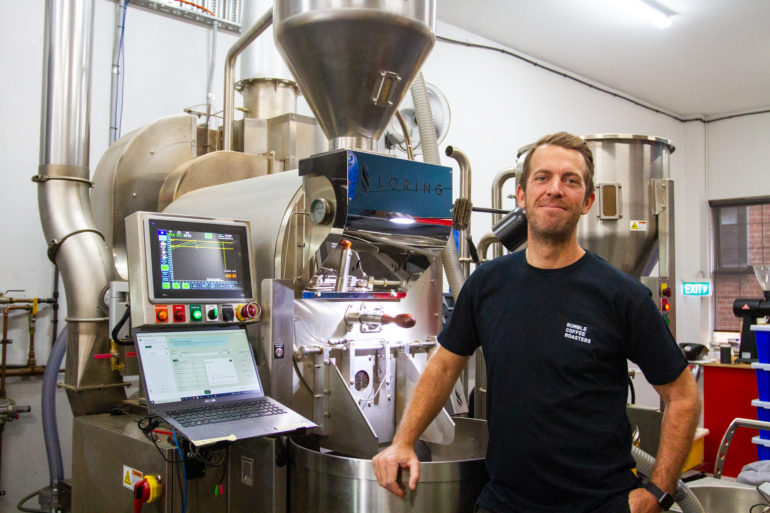
COVID had quite the impact on the cafes and roasterys in Melbourne, Australia. The longest shutdowns in the world were in Melbourne, and their central business district is still not completely open to full capacity. Rumble Coffee owners, Joe and Matt, have had to shift their coffee company in order to adapt to the pandemic and supply chain changes in Australia. Looking after their existing customers, growing the ecommerce site, and creating more content around the website are ways that Rumble Coffee have pivoted during COVID. Now, with raw material shortages and green bean costs going up, Matt and Joe plan on raising their coffee prices. This comes with a responsibility to educate their buyers on why they should be charging more for coffee as well.
Matt explained to me that the price of a cup of coffee has not changed in Australia for the past 15 years. The equipment, sourcing, and cost of green beans have increased in price significantly, but the price that coffee is sold for remains the same. Australia has one of the cheapest coffee prices per cup in the western world, yet green bean prices remain high. Joes states, “We’re trying to get that story across that you get what you pay for. So many individuals are involved in getting that cup of coffee to you and they’re all human beings that deserve to be looked after and it’s not just okay. Coffee should cost $6 or $7.”
Focusing on acquiring more wholesale business as cafes start to open is Rumble’s current business strategy. There’s a hope that there will be more people starting cafes since so many did not make it through the pandemic. Not being able to do public cuppings has been difficult, but Matt has worked on educating customers and wholesalers on what specialty coffee is. “To charge more for the specialty coffee, it’s important for people to understand why it’s specialty.” Joe says “A lot of companies in Australia are branding themselves as “specialty” when that’s just not the case.”
Rumble signed up for coffee transparency with Emory University out of Atlanta which is a data donation contract. Rumble donates purchasing data, and Emory University collects coffee data from all over the world of importers, exporters and producers. They get back to Rumble and tell them what other companies are paying for green beans in that area. “We pay for the green and the cafe will pay more for the roasted coffee, if the consumer pays more. And the barista gets paid more as well”. Matt and Joe have to educate their wholesale customers about why charging more for coffee is important, even if it doesn’t feel intuitive to their business model.
With each single origin Rumble releases, there’s a QR code on a card that scans to the website. “Most people want to know you’re doing something. And they vaguely know you’re doing something and they like the coffee and that’s all they need. But some people want to go deeper, so that information is there for the people that are interested and want to learn.” It’s important to Joe to not drown people in information, so striking the balance between education and keeping it accessible is a fine line to walk. Joe feels certain that the coffee climate in Melbourne is changing. He says, “The price of coffee and our cost of coffee are going up so much. And trying to manage that and still trying to grow and get new customers can be challenging. All the roasteries in town will be putting their prices up but everyone is waiting to see who goes first.”